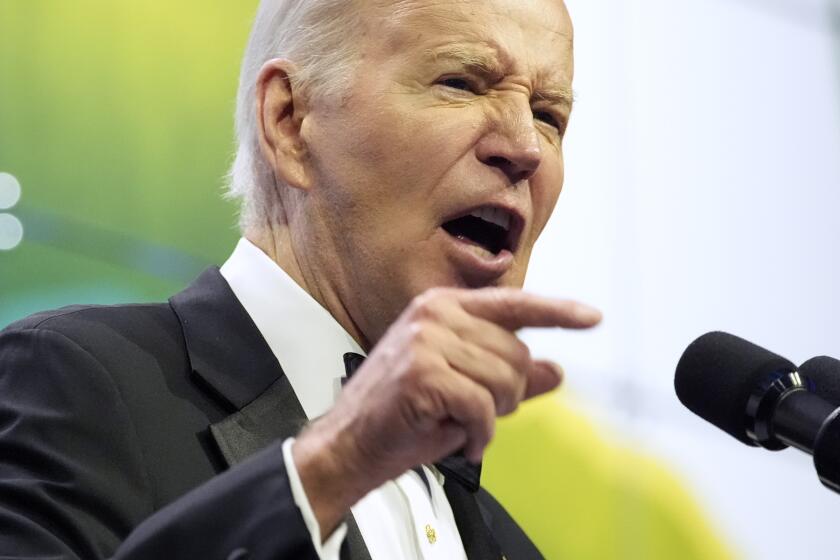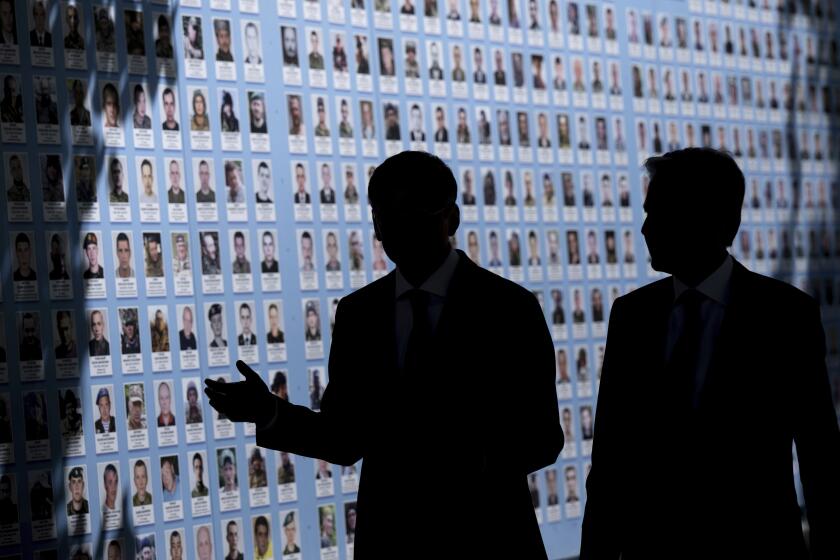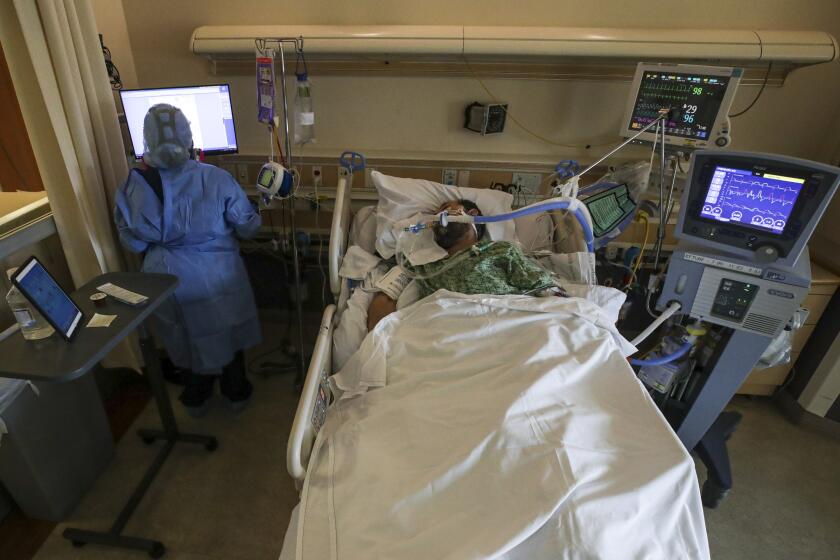Outrage Rises From Anguish in Russia
Grief and graveside visits share time with hunger strikes and political organization. Beslan’s raw emotions have given way to steely-eyed purpose since September’s school massacre.
At the vanguard is a committee of mostly women who lost children and grandchildren. They are demanding answers from a government they think has failed them.
Founded in anguish as Middle School No. 1 still smoldered, the Beslan Mothers’ Committee has evolved from a haven into a combination political organizing committee, survivors advocacy group, consulting center for victims and friendly gossip circle.
It provides a structure for women who might otherwise be agonizing alone while cooking meals, doing laundry or cleaning their apartments. And it gives purpose to women who would give anything to be walking their children to and from school.
“Without this, I don’t know how we could go on,” said Rita Sydakova, 44, who lost her daughter. “This is the best therapy.”
During the Sept. 1-3 siege, 32 heavily armed terrorists held more than 1,000 captives in the school’s sweltering gym with no food and little water. About 330 people, more than half children, died when a storm of explosions and bullets ended the standoff. The absence of concrete details of what happened and the lack of an official accounting of the dead angered relatives and survivors.
The committee seeks answers to lingering questions: Why were the militants so easily able to seize the school? Did anyone in the government or law enforcement know beforehand about the attack? Why did the standoff end in explosions and gunfire?
In December, the group organized a days-long blockade of the main highway through Beslan. In February, women from the group traveled to Moscow, where they held a news conference calling for the resignation of Alexander Dzasokhov, president of North Ossetia, the region where Beslan is located.
Critics say Dzasokhov turned a blind eye to rampant corruption, which many believe allowed the militants to drive unnoticed into Beslan to seize the school, which is just steps from a police station.
On May 31, Dzasokhov announced he was stepping down early. He made no mention of Beslan, but Susanna Dudiyeva, 44, whose son died in the school, believes the mothers’ unrelenting criticism brought about the resignation.
The protests have continued, with mothers carrying placards and going on hunger strikes outside the government headquarters in the regional capital, Vladikavkaz, to criticize Dzasokhov’s Kremlin-appointed successor, Taimuraz Mamsurov, who they say has failed to meet with survivors.
On a recent warm night, in a room within sight of the school’s charred timbers, several women discussed a political demonstration scheduled for the next day. Others talked about ways to get government assistance.
Nearby on a desk lay an album containing hundreds of photographs of children, some wounded, most dead.
Sitting before a donated computer, next to a donated fax machine and a donated printer, Ella Kisayeva, 41, said that before the horror at the school many of the women had no experience in anything but housekeeping and child-rearing.
“How could I sit at home alone after all this? Cooking? Cleaning? All by myself?” she said. “How could I stay silent?”
The wallpapered walls are bare but for three pieces of white paper -- the group’s political slogans. One reads: “Remember for whose sake we are here! Remember our children together! Remember they are our conscience!”
The committee began when a few mothers sought to console one another after the tragedy. Gatherings became regular and larger as their outrage focused on corruption and government incompetence.
The committee now numbers more than 100, and includes fathers, grandfathers and sons of some adult victims, Dudiyeva said.
“There is a class of people here who are not indifferent, who will remind the authorities that without action, without someone taking responsibility, this type of [terrorist attack] could happen again,” she said.
Dudiyeva said the committee had uncovered important details about the hostage-taking, such as that the truck carrying the militants to the school had a police escort and that weapons had been stored in the school ahead of time -- a claim authorities have not publicly confirmed.
In the adjacent kitchen, no bigger than a closet, a discussion over theories about the hostage seizure’s violent end quickly moved on to memories of children -- Sydakova’s daughter playing basketball, Zalina Tybloyeva’s 6-year-old nephew playing word games.
Sobbing interrupts the conversation.
“Ours is the politics of grief. The politicians have done nothing for us,” said Tybloyeva, whose sister and niece also died. “From this grief comes our politics. Rita’s daughter, she wasn’t a politician. And now she’s dead.”
More to Read
Start your day right
Sign up for Essential California for news, features and recommendations from the L.A. Times and beyond in your inbox six days a week.
You may occasionally receive promotional content from the Los Angeles Times.






